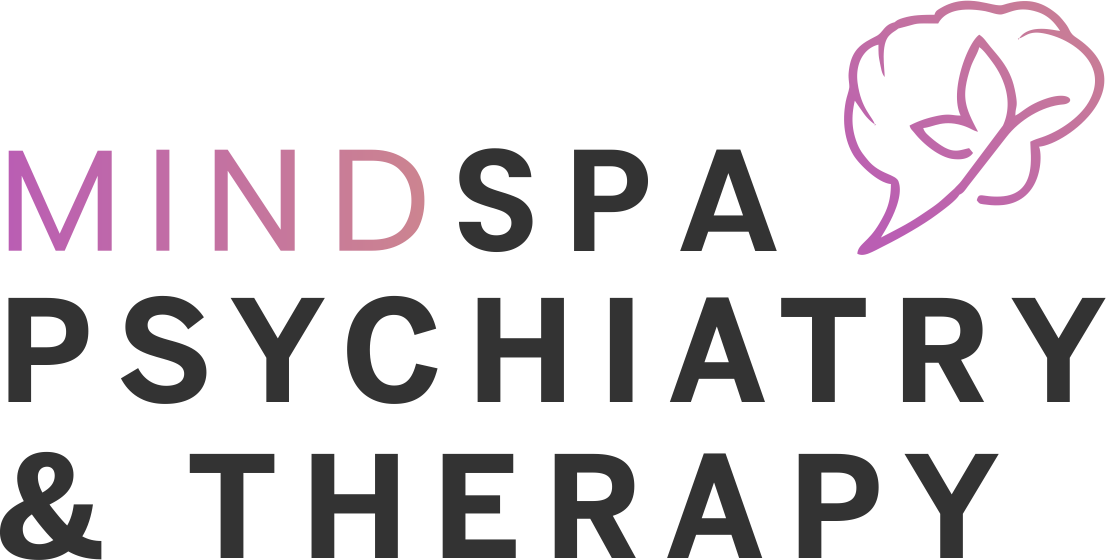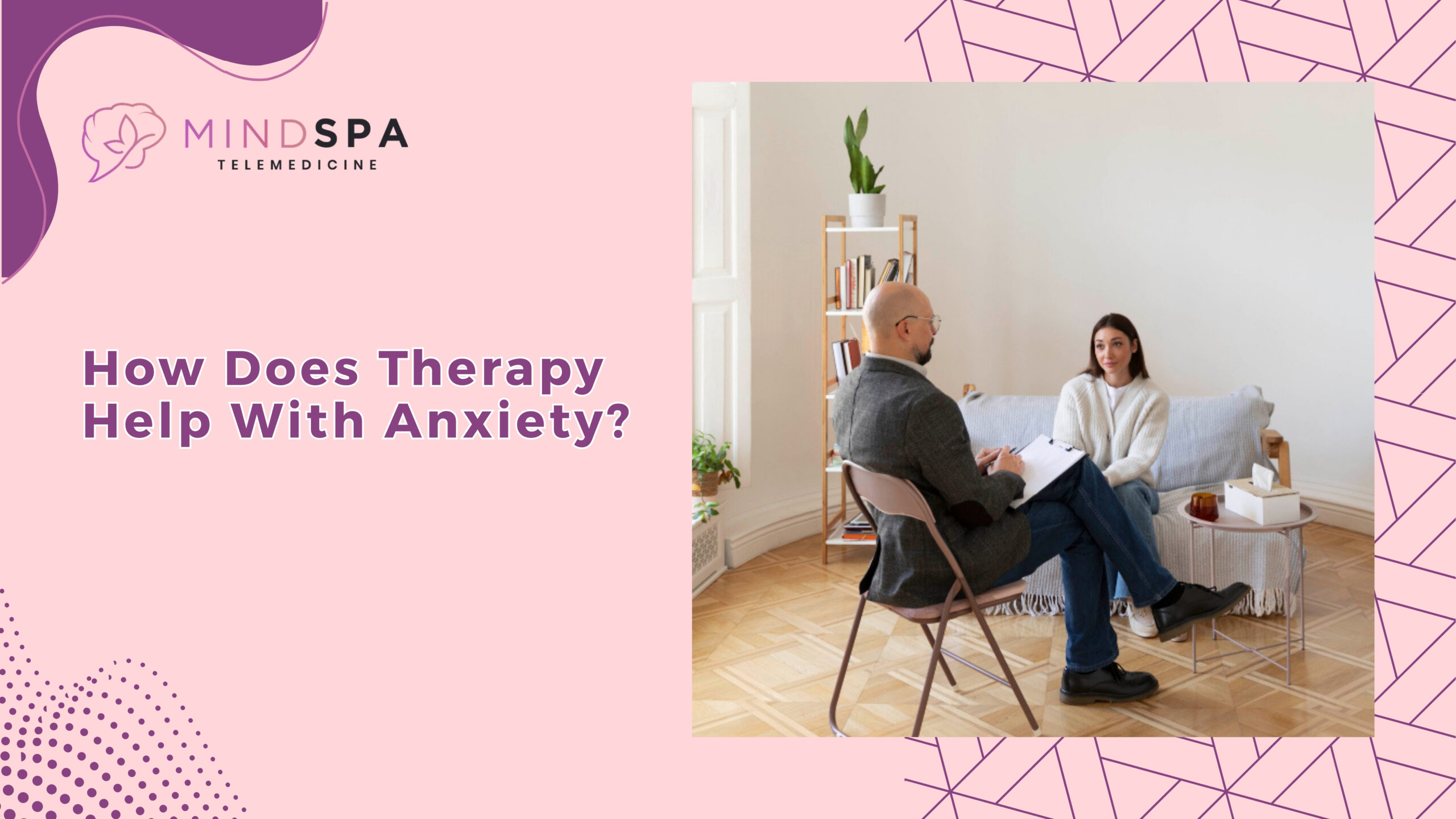Feeling anxious is a normal experience for everyone. However, when it is beginning to interfere with your routine, relationships, or even your relaxation, then it is time to address it. Whether you’re experiencing constant worry, panic attacks, or overwhelming fear, therapy can assist you to regain control of your thoughts and feelings.
In this blog, we’ll explain how therapy works for anxiety, what types of therapy are available, and what benefits you can expect.
What Is Anxiety?
Anxiety is a natural human response to any stress. It is an emotion of dread or concern about what might happen. Anxiety is normal, but when there is too much or when this is persistent, it can affect your daily life. Symptoms may be common and include:
- Racing thoughts
- Muscle tension or restlessness
- Trouble sleeping
- Difficulty concentrating
- Irritability
- Avoidance of situations that cause worry
Anxiety disorder is one of the common mental health disorders. The good news is that treatment can improve the situation, to a great extent.
How Does Therapy Work for Anxiety?
Therapy is a secure, confidential setting to assess your thoughts and emotions in the presence of a qualified practitioner. Anxiety therapy is more than talking. It is a learning experience in thinking, responding and coping with anxiety in constructive healthy ways.
Therapy can help in the following ways:
1. Identifies Triggers
Therapists help you understand what’s causing your anxiety. It could be a pattern of negative thinking, past trauma, stress at work, or fear of the unknown. Knowing your triggers is the first step to managing them.
2. Changes Negative Thinking
Anxiety often comes from unhelpful thought patterns. A therapist will work with you to challenge and replace negative thoughts with more realistic, balanced ones. This is a core part of Cognitive Behavioral Therapy (CBT), one of the most effective forms of anxiety treatment.
3. Teaches Coping Skills
Therapists teach you how to manage anxious moments through breathing techniques, mindfulness, and stress-reducing exercises. Over time, you’ll gain strength to calm your mind and respond to anxiety in a more effective way.
4. Builds Confidence
As you learn to manage your anxiety, you’ll also build confidence in your ability to face challenges and overcome worry. Therapy empowers you to take charge of your mental health and your overall life.
Types of Therapy for Anxiety
Different types of therapy may be used depending on your needs. Some of the most common include:
1. Cognitive Behavioral Therapy (CBT)
CBT helps you understand the link between thoughts, emotions, and actions. You’ll learn to spot distorted thinking, stop unhelpful behavior patterns, and develop healthier responses to anxiety.
2. Exposure Therapy
This approach gently and gradually exposes you to the source of your anxiety in a safe setting. Over time, you become less sensitive to the fear and learn that you can handle the situation.
3. Mindfulness-Based Therapy
Mindfulness teaches you how to stay in the present moment and observe your thoughts without judgment. This is helpful for managing general anxiety and racing thoughts.
4. Talk Therapy (Psychodynamic)
Talk therapy allows you to explore past experiences and emotional pain that might be contributing to your anxiety. It helps you heal from the root and understand yourself better.
Benefits of Anxiety Therapy
Therapy isn’t just about feeling less anxious. It’s about improving your quality of life. Here are some benefits of consistent therapy:
- Better sleep and more energy
- Healthier relationships
- Improved concentration and decision-making
- Reduced panic attacks and fear
- Increased emotional resilience
- Greater self-awareness and confidence
For many people, therapy can be life-changing. You don’t have to suffer long-term. Help is available and effective.
What to Expect When You Start Therapy
Starting therapy can feel intimidating at first, but it’s one of the best decisions you can make for your mental health. Here’s what your first few sessions might look like:
- Initial evaluation: You’ll discuss your symptoms, goals, and history with your therapist. This helps create a treatment plan tailored to you.
- Ongoing support: Therapy sessions are consistent and focused. Your therapist will help you track your progress and make adjustments as needed.
- Privacy and comfort: Everything you share is confidential. At MindSpa Psychiatry & Therapy, we create a safe, judgment-free environment where you can truly open up.
If you’re not sure what type of therapy you need, don’t worry. Our team will help guide you based on your symptoms and preferences.
Conclusion
Therapy doesn’t promise instant results, but it offers steady progress. Over time, many people find that their anxiety reduces, their confidence grows, and their ability to handle life’s ups and downs improves.
Even if your anxiety feels overwhelming today, there is hope. Therapy helps you take back your power and live with more peace, clarity, and joy.
At MindSpa Psychiatry & Therapy, we specialize in helping people just like you find relief from anxiety. If you’re in Boynton Beach or surrounding Florida cities, let’s talk.
If you’ve been searching for Anxiety therapy near me, Boynton Beach, Delray Beach, Boca Raton, Lake Worth, West Palm Beach, Royal Palm Beach, Wellington, in Florida, then contact us. MindSpa Psychiatry & Therapy is here to help.
Frequently Asked Questions
How does therapy help people with anxiety?
Therapy helps identify triggers, change negative thought patterns, and teach coping skills to reduce anxiety and improve daily functioning. It also offers a safe space to explore emotions and build long-term resilience with professional guidance.
Can I overcome anxiety without therapy?
Some people manage anxiety with lifestyle changes, but therapy offers proven strategies and long-term support for lasting relief and improvement.
What to expect at therapy for anxiety?
Expect open conversations, coping techniques, and a personalized treatment plan focused on managing thoughts, emotions, and behavior patterns effectively.
Does anxiety go away with therapy?
Therapy can significantly reduce anxiety symptoms and improve quality of life, especially when combined with consistency, self-care, and support.
What is the success rate of therapy for anxiety?
Studies show therapy, especially CBT, has a 60–80% success rate in reducing anxiety symptoms and improving emotional well-being long-term.

